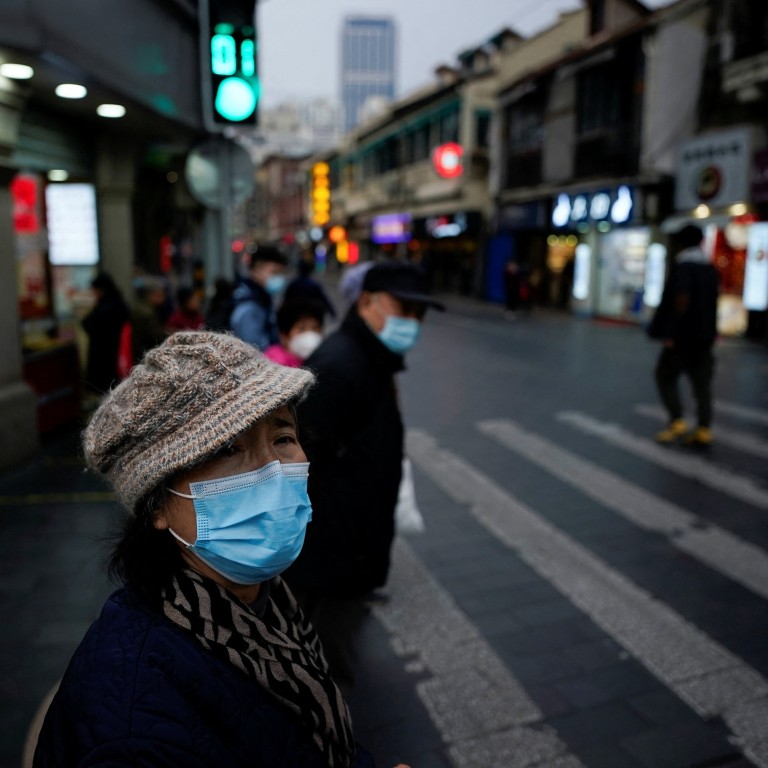
China’s zero-Covid policy under renewed scrutiny as economic challenges mount
- While the strict disease prevention strategy proved a success early in the pandemic, economic risks are growing and so is public dissatisfaction
- The policy will further weigh on consumption and economic growth, and may prove ineffective in containing a more transmissible virus variant, economists say
China’s zero-tolerance approach to the coronavirus pandemic has become the subject of renewed debate by economists, who say the cost to the economy is becoming increasingly unbearable.
While the strict disease prevention strategy proved a success early in the pandemic, a more transmissible variant in Omicron, the rising costs of lockdowns, soft domestic consumption, a deteriorating fiscal situation and increasing dissatisfaction among its population are causing diminishing benefits for China, economists said.
“It is necessary to take a forward-looking approach,” said Chen Xingdong, chief China economist at the BNP Paribas. “China cannot simply continue with whatever the policy is being implemented.”
We do expect the zero-Covid policy to ease, but we do not know what the easing measures are going to be and when they will take place
“We must learn a lesson from Xian,” Chen said at the 2022 China economic outlook webinar hosted by BNP Paribas on Thursday. “It doesn’t seem that all the local governments are able to implement the policy ideally, so I think the central government has become more realistic.”
“It seems the central government has realised the cost of the zero-Covid policy – it is definitely very dear and it’s hard to continue.”
What next for China’s zero-Covid policy as Omicron travels the world?
“We do expect the zero-Covid policy to ease, but we do not know what the easing measures are going to be and when they will take place.
“In general, we are expecting that after the Winter Olympics, the policy may have some adjustment, but to what extent the easing will go? I think this still remains a big question.”
While the country faces other challenges such as increasing resistance from the West, an exhausted growth model, an overleveraged and unbalanced economy and a rapidly ageing population, the zero-Covid policy is the most acute risk because it will further weigh on consumption and growth, while fostering greater social frictions, Eurasia Group said.
“China is in the most difficult situation because of a zero-Covid policy that looked incredibly successful in 2020, but now has become a fight against a much more transmissible variant with broader lockdowns and vaccines with limited effectiveness,” the consultancy said in its annual report of the top 10 risks published on Monday.
“China’s policy will fail to contain infections, leading to larger outbreaks, requiring in turn more severe lockdowns.
“This will in turn lead to greater economic disruptions, more state intervention, and a more dissatisfied population at odds with the triumphalist ‘China defeated Covid’ mantra of the state-run media.”
Abandoning [zero-Covid strategy] now could be perceived as conceding that the strategy did not work in the first place
Lu Ting, chief China economist at Nomura, said the nation may soon reach an inflection point, with the costs of doubling down on zero-Covid outweighing the benefits, though the policy might be extended well into 2022.
As most countries choose to “live with Covid” and China becomes the lone holdout of a zero-tolerance approach, it might be increasingly costly to maintain, while raising the risk the country will be left out of the global services trade, such as tourism, Lu said.
Last month, the World Bank cut its forecasts for China’s economic growth in 2021 and 2022 to 8 per cent and 5.1 per cent, down from 8.5 per cent and 5.4 per cent, respectively.


